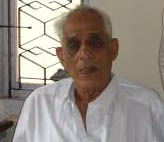Bengaluru, Jul 25: The Karnataka government on Saturday announced a waiver of crematorium fees for those who succumb to the COVID-19 infection in Bengaluru and said the city civic body would bear the cost.
It said that from now on, families of the COVID deceased need not pay any fees fixed by the city civic body- Bruhat Bengaluru Mahanagara Palike (BBMP)- across 12 electric crematoriums in the city.
"There were reports in the media about difficulties faced in performing the last rites of those who died due to COVID-19 infections. Aimed at resolving those difficulties, certain decisions have been taken," Revenue Minister R Ashoka said.
He told reporters here that BBMP had fixed Rs 250 as the cremation fee, Rs 100 for the ash collection pot and Rs 900 for the bier (bamboo stretcher on which the body is carried), all of which have been waived for COVID deaths.
"So it will be a waiver of Rs 1,250 per cremation. The BBMP will bear this cost," he added.
Ashoka also announced Rs 500 per body incentive for the personnel who conduct the last rites of COVID victims.
"This is in recognition of their services at a time when family members of the deceased are not ready to touch the body and not ready to take the body in some cases," he said.
Noting that the government has identified 23 acres of land at five places around Bengaluru for burial or cremation of COVID victims, Ashoka locals in all these areas are protesting against it.
Appealing to the people for cooperation during these difficult times, he said the government's intention was to ensure respectful burial or cremation for the deceased.
"Obstructing it is not right, it is not Indian tradition," he said.
Pointing out that it takes almost a day's time for a COVID victim's body to be handed over for burial or cremation, he said "scientifically, according to experts and doctors, the virus will not remain alive for more than three hours.
...Also, bodies are either burnt or buried eight feet below. So there will not be any problem for those living in nearby areas and it will not spread infection. Cooperate with humanity," he said.
"These lands identified are for all religions and communities and once the pandemic subsides, can be used for other deaths as well," he said.
 Mangaluru, Jun 3: Haji Moosa Kunhi Manjeshwar, son-in-law of late Haji V Ramlan, Rtd Asst. Commissioner, Mangaluru, passed away on Thursday, June 2 at 1.30 p.m, after a prolonged illness at their residence in Mangaluru.
Mangaluru, Jun 3: Haji Moosa Kunhi Manjeshwar, son-in-law of late Haji V Ramlan, Rtd Asst. Commissioner, Mangaluru, passed away on Thursday, June 2 at 1.30 p.m, after a prolonged illness at their residence in Mangaluru.



Comments
Great Personality ,community leader and peace lover.may Allah grant him Jannah for his good deeds
Inna lillahi wa inna ilahi rajioon . Wellknown great person
inna lillahi wa inna ilayhi raajhioon
Innalillahi va Inna Ilihi Rajihoon, a well known personality, a huge loss to Manjeshwar, May Allah grant a strength for his family to bear this loss
Inna Lillahi Wa Inna Ilayhi Raaji'oon, very good human being. thanks for the coverage \CD\"."
Add new comment